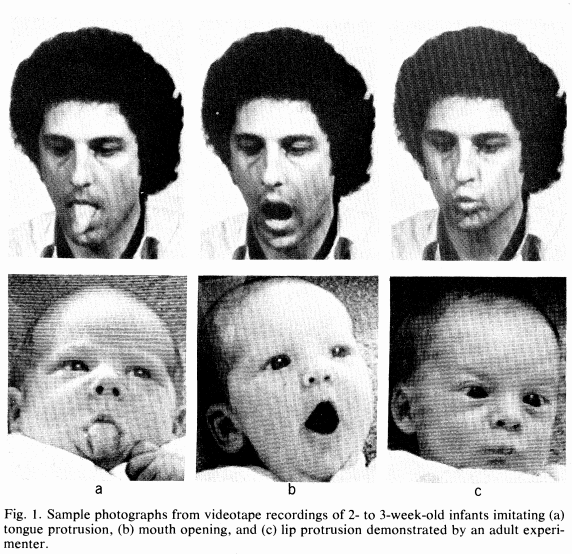Sticking out your tongue at babies |
July 4th, 2012 |
| cogsci |

Imitation of Human
and Manual Gestures by Human Neonates
Meltzoff and Moore experimented with making faces at infants [1], looking for imitation. They found it: when the experimenter stuck out their tongue, the baby was more likely than chance to do the same. Which is actually amazing: think about all the steps it takes for them to do this. They need to have a connection between their eyes seeing a change in the experimenter's mouth and activating the muscles in their own mouth in just the right way as to duplicate the gesture. This shattered my previous understanding of neural development, where babies learn how to interpret their senses and move their muscles with lots of practice and experimentation. There is certainly still some of that, but this shows several complex systems are working and connected right after the eyes get their first look at the world.
[1] They later repeated this experiment with newborns under 72 hours old and got similar
results. (Imitation
in Newborn Infants: Exploring the Range of Gestures Imitated and the Underlying
Mechanisms)
Comment via: google plus, facebook